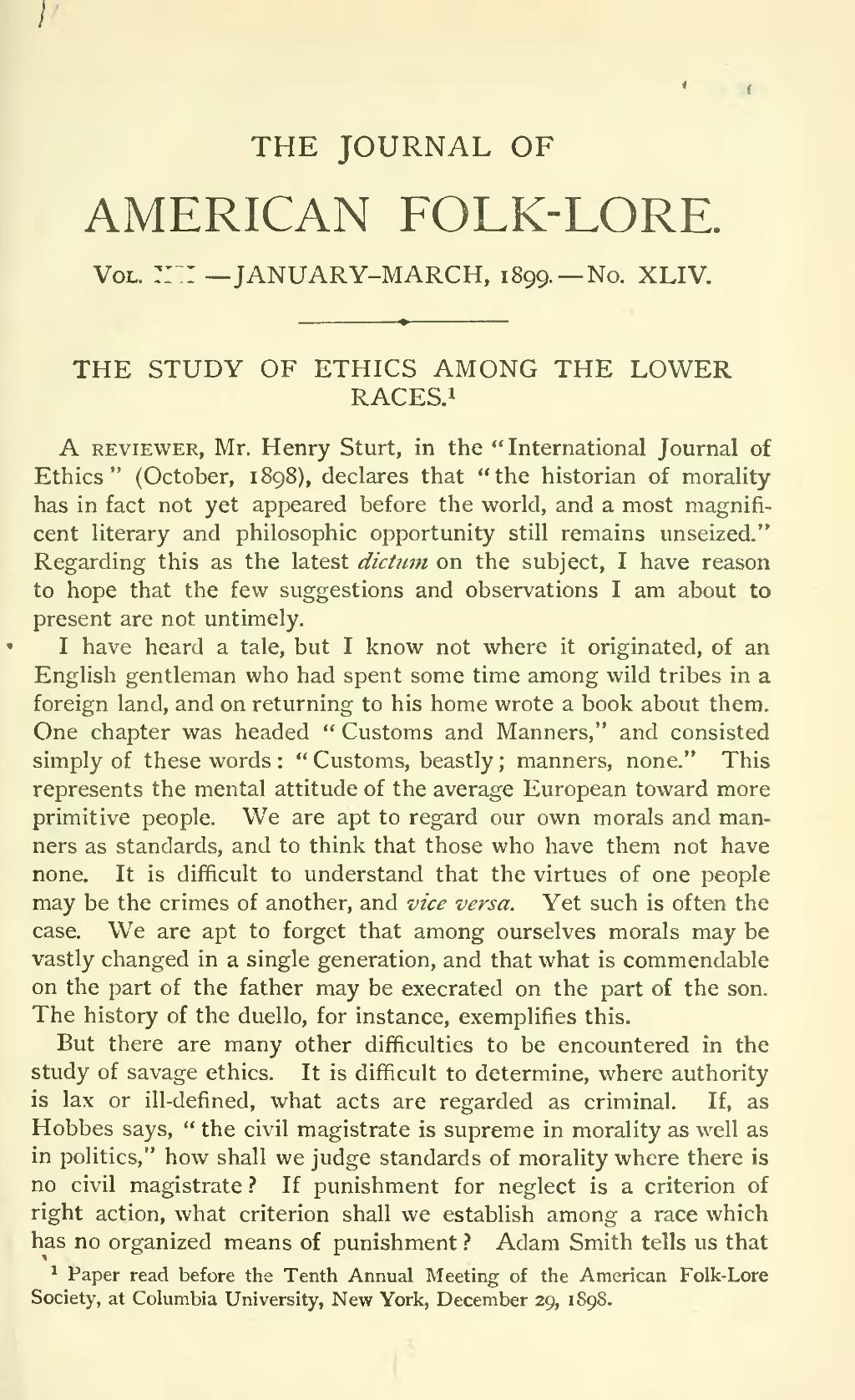THE JOURNAL OF
AMERICAN FOLK-LORE.
Vol. XII—january-march, 1899.—No. xliv.
THE STUDY OF ETHICS AMONG THE LOWER RACES.[1]
A reviewer, Mr. Henry Sturt, in the "International Journal of Ethics" (October, 1898), declares that "the historian of morality has in fact not yet appeared before the world, and a most magnificent literary and philosophic opportunity still remains unseized." Regarding this as the latest dictum on the subject, I have reason to hope that the few suggestions and observations I am about to present are not untimely.
I have heard a tale, but I know not where it originated, of an English gentleman who had spent some time among wild tribes in a foreign land, and on returning to his home wrote a book about them. One chapter was headed "Customs and Manners," and consisted simply of these words: "Customs, beastly; manners, none." This represents the mental attitude of the average European toward more primitive people. We are apt to regard our own morals and manners as standards, and to think that those who have them not have none. It is difficult to understand that the virtues of one people may be the crimes of another, and vice versa. Yet such is often the case. We are apt to forget that among ourselves morals may be vastly changed in a single generation, and that what is commendable on the part of the father may be execrated on the part of the son. The history of the duello, for instance, exemplifies this.
But there are many other difficulties to be encountered in the study of savage ethics. It is difficult to determine, where authority is lax or ill-defined, what acts are regarded as criminal. If, as Hobbes says, "the civil magistrate is supreme in morality as well as in politics," how shall we judge standards of morality where there is no civil magistrate? If punishment for neglect is a criterion of right action, what criterion shall we establish among a race which has no organized means of punishment? Adam Smith tells us that
- ↑ Paper read before the Tenth Annual Meeting of the American Folk-Lore Society, at Columbia University, New York, December 29, 1898.
